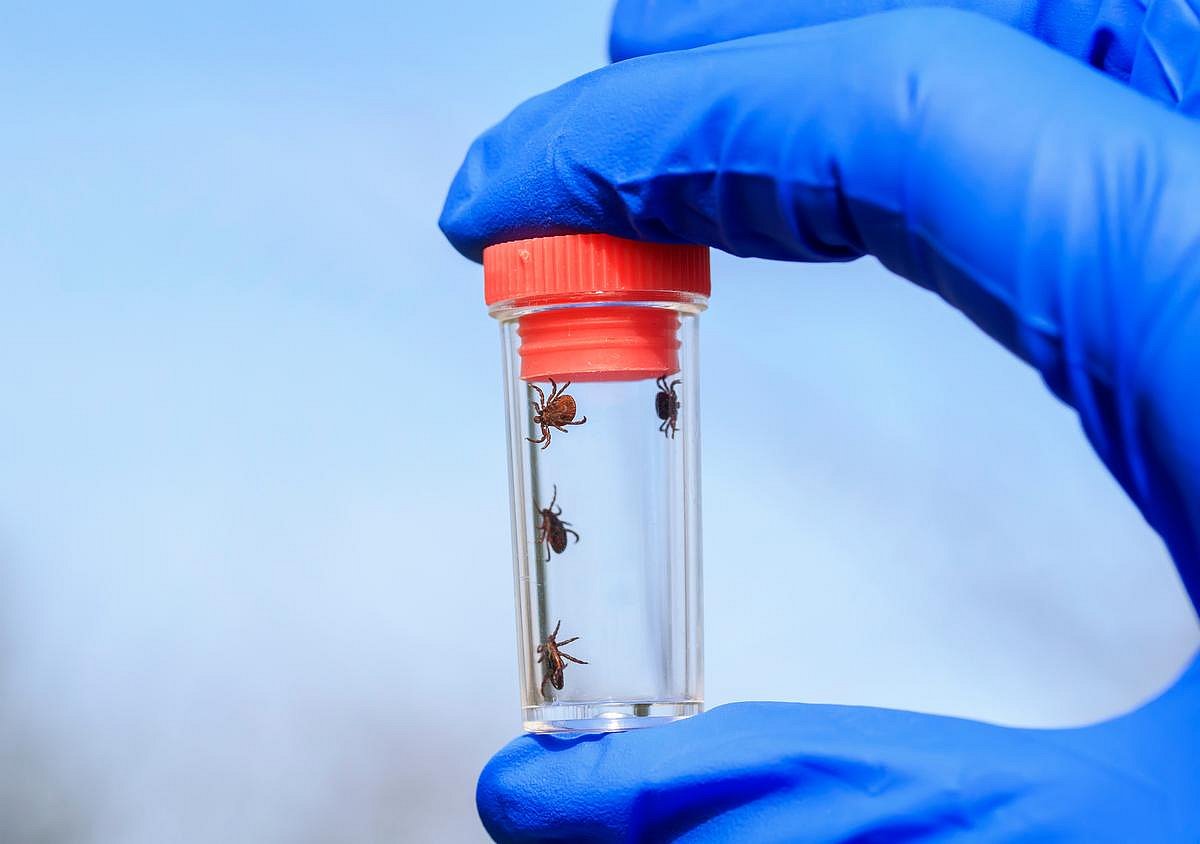Get Healthy!

- Posted November 14, 2025
Man Dies After Eating Beef in First Documented Fatal ‘Meat Allergy’ Case
A rare tick-spread “meat allergy” has now been tied to its first confirmed death, according to researchers at the University of Virginia School of Medicine (UVA).
Doctors reported that a healthy 47-year-old New Jersey man died in 2024 after eating beef, with symptoms starting four hours after his meal.
The cause of death was unclear until UVA allergist Dr. Thomas Platts-Mills, who first discovered the condition, reviewed blood samples and confirmed the man had a severe reaction linked to alpha-gal syndrome, often dubbed “meat allergy.”
The allergy develops after a bite from the Lone Star tick, which can make the body react to alpha-gal, a sugar found in beef, pork, lamb and other mammalian meats.
Many people experience hives, nausea or stomach pain, but experts have long feared that fatalities were possible.
“The important information for the public is: First, that severe abdominal pain occurring three to five hours after eating beef, pork or lamb should be investigated as a possible episode of anaphylaxis; and, second, that tick bites that itch for more than a week or larvae of ticks often called ‘chiggers’ can induce or increase sensitization to mammalian-derived meat,” said Platts-Mills, a world-renowned allergist.
“On the other hand, most individuals who have mild to moderate episodes of hives can control symptoms with an appropriate diet,” he added in a news release.
The New Jersey man had gone camping with his family in the summer of 2024. After a 10 p.m. steak dinner, he woke around 2 a.m. with severe abdominal pain, vomiting and diarrhea. He later told his son he had felt like he “was going to die.”
Two weeks later, he unknowingly triggered another reaction after eating a hamburger at a cookout. He became sick shortly after 7 p.m., and his son found him collapsed at 7:37 p.m. An autopsy later characterized the case as “sudden unexplained death.”
His wife pushed for answers and a physician reviewing the case contacted UVA researchers. Blood tests confirmed an alpha-gal sensitivity.
Although the man had no recent tick bites, he had had 12 or 13 itchy “chigger” bites on his ankles that summer. Platts-Mills noted these were mostly likely from Lone Star tick larvae.
Researchers think several factors may have worsened his reaction, including drinking beer with his burger, recent exercise and exposure to ragweed pollen. His family also shared that the man rarely ate red meat.
With deer populations increasing in many states, Platts-Mills warned that more people may be exposed to the Lone Star tick.
"It is important that both doctors and patients who live in an area of the country where Lone Star ticks are common should be aware of the risk of sensitization," Platts-Mills said. "More specifically, if they have unexpected episodes of severe abdominal pain occurring several hours after eating mammalian meat, they should be investigated for possible sensitization to the oligosaccharide alpha-gal."
Details of the case were published Nov. 12 in the Journal of Allergy and Clinical Immunology: In Practice.
More information
The Mayo Clinic has more on alpha-gal syndrome.
SOURCE: University of Virginia Health System, news release, Nov. 13, 2025





